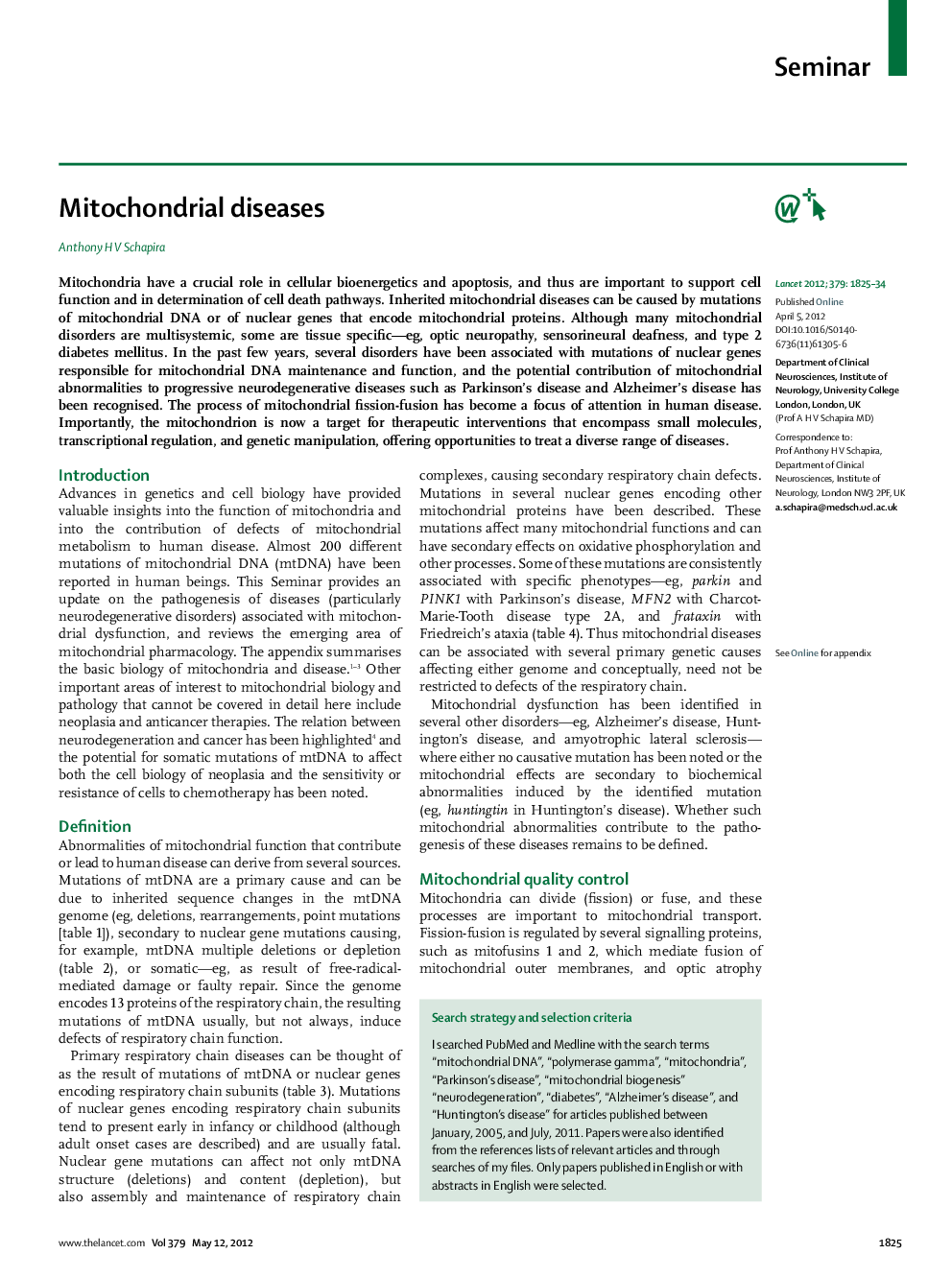| Article ID | Journal | Published Year | Pages | File Type |
|---|---|---|---|---|
| 3492884 | The Lancet | 2012 | 10 Pages |
SummaryMitochondria have a crucial role in cellular bioenergetics and apoptosis, and thus are important to support cell function and in determination of cell death pathways. Inherited mitochondrial diseases can be caused by mutations of mitochondrial DNA or of nuclear genes that encode mitochondrial proteins. Although many mitochondrial disorders are multisystemic, some are tissue specific—eg, optic neuropathy, sensorineural deafness, and type 2 diabetes mellitus. In the past few years, several disorders have been associated with mutations of nuclear genes responsible for mitochondrial DNA maintenance and function, and the potential contribution of mitochondrial abnormalities to progressive neurodegenerative diseases such as Parkinson's disease and Alzheimer's disease has been recognised. The process of mitochondrial fission-fusion has become a focus of attention in human disease. Importantly, the mitochondrion is now a target for therapeutic interventions that encompass small molecules, transcriptional regulation, and genetic manipulation, offering opportunities to treat a diverse range of diseases.
